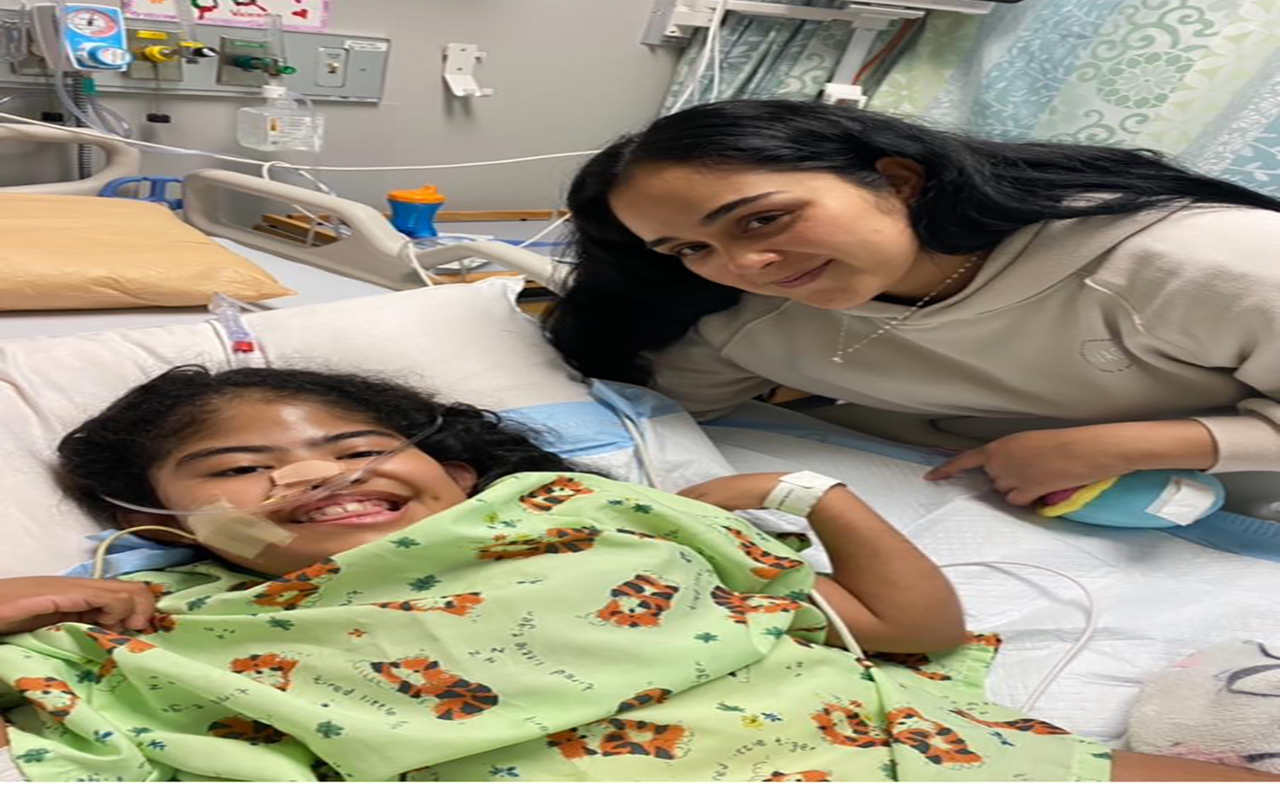
Few Latino nurses but they are making a mark in the profession
From the dean of the University of Pennsylvania School of Nursing, to the president of the local chapter of the National Association of Hispanic Nurses (NAHN),…
In light of National Nurses Week, May 6-12, AL DÍA News spoke to a number of Latinos who are making a mark in the profession, even though Hispanics represent only 3.6 percent of the four million registered nurses in the nation.
Antonia Villarruel
Antonia M. Villarruel is the dean of the University of Pennsylvania School of Nursing, considered the best of its kind in the United States.
“I’ve inherited a school with a tradition of excellence,” said Villarruel, who was named dean last July. “Our goal is to work with faculty and students to determine where we can have the most impact in improving health care and population health locally and globally.”
Villarruel said that although there aren’t enough Latino students in the school of nursing, the numbers are good compared to other Ivy League institutions.
“It’s not just one or two in each class. There’s five, ten… so people don’t feel as isolated. Throughout my nursing career I was probably the only Latina in my class from baccalaureate to masters to PhD level.”
There are significant challenges in increasing Latino representation in nursing schools. Villarruel cited the lack of efforts to drive interest in the study of science among young Latinos. Even for those who are interested, the ready availability of vocational and technical programs in other health-related fields may seem like more viable options than nursing school. There are common misconceptions among the general public about what nurses actually do, and that it goes far beyond taking orders from doctors.
“The biggest misconception is that nurses are doers — but nurses are thinkers and planners and leaders as well,” Villarruel said. “We are knowledge translators, we are safeguards for patients and families and hospitals. We are promoters of health in communities and we are leaders in the healthcare system and in our communities.”
Among the major contributions Villarruel has made to the field, is her research and development on reducing the risks related to sexual activity among young Latinos. The programs have been implemented in the United States, Puerto Rico and Mexico.
Last month the Latino Nurses Symposium, organized by Latino students at Penn, attracted some 100 participants from different parts of the nation.
“They wanted to bring Latino nurses and students together to help them aspire to be whatever they want to be in this profession,” said Villarruel. “For our students it was good to see people who have experienced some of the same challenges that they perceive, that they’re experiencing, and then to be able to thrive in that environment.”
She herself is an example of this. The Mexican American comes from a family of immigrants. Her parents motivated her to continue onto to higher education from the time she was little. But while her brothers were given the option of studying whatever they wanted, they only gave her the option of becoming a teacher or a nurse. Undoubtedly, Villarruel made the right decision.
“I hope that my being in this position creates that vision [of possibility] for other nurses, for other people in my community,” she said.
Among the initiatives that Villarruel is implementing or hopes to implement are a Doctor of Nursing Practice (DNP), the highest title for nurse practitioners. In addition, the school offers study programs in Mexico and Spain with a focus on Spanish language. There is also the Penn initiative in Latin America, through which students, academics and researchers develop their interest and work in Latin America, and work in an interdisciplinary way with other departments of the university.
Steven Cabrera

Steven Cabrera, who recently graduated from nursing school at Penn, works at Penn Presbyterian Medical Center.
“My unit is actually a little different than others, we have more Latino nurses,” said Cabrera, one of four Latinos among the 30 nurses who make up his unit. “That’s actually a very big deal because other units hardly even have one.”
“The trend is to make health care accessible to everyone but if we can’t understand our patients and they can’t understand us…” Cabrera went on to add that this is a concern that is not only related to language. “As a first generation Mexican-American,” he said, “I can relate to the traditions and the values of many other people from the same background, paisano a paisano [person to person].”
Cabrera recalled some cases where being Latino was an advantage in caring for patients.
“I had a patient who was very nervous about speaking English but when he found out that I was taking care of him and that I spoke Spanish, that opened many doors and that ultimately resulted in a better care,” Cabrera said. “Elderly Latino patients are comfortable with English, but they still have the nostalgic value of Spanish, and when you provide care to them in Spanish, it means a lot to them.”
He believes that one of the reasons why there are not more Latinos in nursing, a field traditionally occupied by women, is because there is a stigma in comparison with medicine, particularly for Latino men.
“Some people say if you are not going to be a doctor, you might as well not even go to into health, and that’s not the case,” Cabrera said. “It’s up to us as Latinos to show to aspiring college students that nursing is a viable thing and that we can make a difference.”
In his case, he preferred nursing to medicine because he considers nurses to be the ones who ultimately “create a genuine relationship with the patients.” One of the challenges he has faced as a new graduate is the transition to the role of nurse, in addition to long shifts and schedules.
“At the end of the day it’s a labor of love. I love what I’m doing, and no matter how tired I am, how beat up, how long the day has been, at the end of the day I know I helped someone, and that for me is enough to validate why I chose to be a nurse,” Cabrera said.
The 23-year-old Mexican-American is also a volunteer at Puentes de Salud, an organization in South Philadelphia that provides medical services to immigrants and people without medical insurance.
“One of my ultimate goals is to become a nurse practitioner and to open up a clinic just like Puentes de Salud, to help the undocumented population, and to help Latinos who can’t get health care,” said Cabrera, who would like to study a masters in acute care and family health.
Raquel R. Diaz
Raquel R. Diaz has been the president of the local chapter of the National Association of Hispanic Nurses (NAHN) since February, and works as the manager of interpretation services in the health system of a local university. When she moved from Puerto Rico to the United States 20 years ago (after obtaining her degree in Nursing Sciences) she faced a language barrier in obtaining her license and employment.
“I could not get a job, so I dedicated myself to go over everything I had studied — but now in English — in order to pass the exam and get my license to practice nursing in this country,” Díaz said.
Those who study nursing in Puerto Rico must obtain their license on the island before requesting a two-year temporary permit to practice in the United States, or they must pass the exam in this country.
“It took me almost two and a half years to learn the language and pass the exam,” Diaz said. “It was very hard.”
During that time, she was determined to excel in the field of health, and she did, as a drug and alcohol counselor, and as a mental health aid.
Her message to other nurses from other countries who are going through what she went through years ago is "to seek jobs in areas in which they are going to remain in direct contact with the health field for motivation to keep fighting to pass the exam and get their license.”
Her achievements at the local chapter of NAHN include extending the expiration date on a temporary permit for Puerto Rican nurses in the US, which previously was only one year instead of two.
The local chapter has about 25 members, a number that she seeks to increase. On May 6 she will hold a meeting for members and for those who are interested in joining the group. Moreover, Díaz added that the local chapter provides scholarships for nursing students.
“Our mission is to give voice not only to nurses, students and practitioners, but also to our community, help nursing professionals find the right place in the field of employment and help them grow."
Jasmine Perez

Jasmine Perez is a graduate of the University of Pennsylvania School of Nursing, president of the Association of Latino Alumni, and midwife in AtlantiCare Regional Medical Center in southern New Jersey.
“I’ve been a midwife for three years and I do gynecological care for women starting in their early teens and throughout their life,” said Perez. “I also do birth control counseling, prenatal care and deliver babies.”
She said that part of the reason she decided to become a nurse is due to the lack of Latino representation, which she considers particularly important when it comes to women’s health care.
“Latinas view healthcare very differently and a lot of what they think about their health comes from what family members may have told them — which is not necessarily truth,” said Perez. “If you have a Latino background you know the kind of traditional beliefs people have and you can understand where they’re coming from.”
Another cultural difference among Latinos, according to the New Yorker is when a new member joins the family.
“During the birth of babies, it is very important for Latinos to have a lot of family members around,” said Perez. “Hospitals don’t really allow having lot of people in the room but keeping everybody involved is very important.”
For her, being a Latina in nursing has allowed her to help a larger patient population. When there is a no translator or interpreter for Spanish-preferring patients, she herself can communicate with them in their desired language.
“If you are in a hospital or a clinic, and you don’t really know how to navigate the health care system in the first place, not understanding what someone is telling you about your health can be very difficult,” Perez said.
One of the challenges she faced during her studies, is not have seen herself being reflected among her classmates.
“The majority of the people in classes were Caucasian, and their struggle was very different. They had access to resources that I didn't have,” said Perez. “I was trying to maintain good grades but also to manage family life and working.”
In her view, if there aren’t more Latino nurses, it is partly due to the lack of role models in this industry, and because some Latinos interested in the health field prefer to opt for vocational technical programs that allow them to get an income faster to support their family.
Her message to those who are considering becoming nurses: “Take a risk and do it. Find mentors along the way. Get as much experience volunteering and getting to know people, patients and providers. Figure out what speaks to you and go for it.”
Dan Suarez
As president of NAHN, one of the main objectives of Dan Suarez is to promote the nursing field among Latino youth — not only for them to become part, but so they can become leaders.
“We are not creating staff nurses, we are creating future leaders,” said Suarez.
For this purpose the organization has established a leadership academy with five chapters so far, and continues to grow with the support of foundations and corporations.
The organization has memberships for students and it will expand this year to include more young people, in addition to offering them scholarships.
“We are opening the student membership to include those who have not yet been accepted into a nursing school but have an interest in becoming a nurse,” said Suarez.
Among future plans is the development of a program for Latino high school students.
“Some of them don't think about it until they are older, so we are trying to get the message out there as quickly as possible,” said Suarez.
According to him, once Latinos enter the profession, they are more likely than other groups to continue their higher education.
“Their entry point into nursing may be an associate’s degree but once they are in, they continue to pursue higher education,” said Suárez, who added that nursing is an excellent entry point for the Latino middle class.
“When students graduate from nursing school they go from having almost no income to become middle class. It changes not only that individual’s life but the whole family’s,” said Suarez, who added that this in turn serves to motivate others.
The organization has helped to promote the enrollment of Latinos in the affordable health care program implemented by President Obama, along with other community programs working to alleviate hunger and homelessness.
“Wherever we have a chapter, we want to leave our footprint behind and let people know that NANH was there,” said Suarez. “We want to show that we can give back to our community.”
The organization is preparing to hold its national conference July 7-10 in California.










LEAVE A COMMENT: